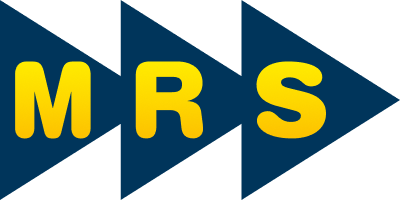Sumário

Annual Report
2022 Sustainability
2022 Sustainability
- PT
- EN
MRS has a wide and diverse range of suppliers that support the Company’s operations. They are providers of services and materials, of different sizes, serving the core business (railway network and rolling network), in addition to all other services necessary for the Company’s full operation, such as maintenance of locomotives and wagons, permanent way equipment, civil works, safety, building conservation, office supplies, among many others. Historically, MRS’ highest financial expenditure is related to diesel supply, which is used to fuel the Company’s locomotives. In 2022, exceptionally, there was a large investment in rolling stock assets. MRS total expenditure on suppliers represented R$ 4.5 billion.
Since 2021, MRS has been structuring its supplier sector in partnership with an external consulting firm, to evolve in the assessment of its partners and, at the same time, to be ready to meet the demands arising from the concession renewal (learn more here), which provides for major works by the Company in the coming years.
With approximately 900 suppliers in 2022, MRS started managing suppliers with the support of one of the best software in the market, according to the benchmark made by the Company with several large companies. Thus, preventively, when registering the supplier in its database, the company promotes ESG questionnaires, addressing Compliance, Governance, Anti-Corruption, Environment, Financial Health, among others. In these questionnaires, the supplier is introduced to MRS Integrity Program, Anti-Corruption Agreement and Code of Ethics. The checking also considers the legal requirements necessary for the provision of each type of service and checks the answers provided in ESG questionnaire based on certificates, available documents and even articles published in the press (reports, for example), including the membership and branches, to identify possible irregularities and draw up action plans. Supplier assessment is a prerequisite for each new contract or contractual amendment.
All partners, after assessment, receive a score from A to E. Those classified with scores B to E undergo a deeper analysis with the appropriate interfaces according to the inconsistency found. In the most sensitive cases, auditing, the executive board and the Board of Directors are also involved. Aiming at the improved monitoring of the value chain and traceability of the origin of inputs, suppliers of environmentally critical items are monitored even more closely and depend on the approval of the Safety and Environment area to provide services to the Company. For example, when contracting wooden railway ties, one of the Company’s main inputs, several documents are required from the sawmill and from the processing unit, such as environmental licenses and registrations with environmental agencies; furthermore, on-site inspections are carried out to attest to the quality and origin, including sending samples for laboratory analysis.
In addition to the preventive analysis, the Company provides, in its contractual instruments, the commitment of its suppliers to the requirements of the Anti-Corruption Law, compliance with ethical and social standards, guarantees of minimum conditions for the provision of services with dignity, and also sets contractual clauses specifically related to Human Rights, with a veto against the use or practice of forced, mandatory, child and/or slave-like labor, including a provision for termination, in case of non-compliance. Such clauses and contractual requirements apply to the company and its subcontractors.
Aiming to monitor the supplier evolution and performance during the term of an agreement, the Supplier Development Index (IDF – acronym in Portuguese) is applied, assessing performance in safety, environment, quality of deliveries and schedule issues. IDF will be revised in 2023 to better adapt to the management system implemented in 2022 for supplier management.
With a focus on expanding the number of suppliers expected as a result of the concession renewal and reducing dependence on an exclusive supplier, MRS set the goal of mapping and developing new suppliers in various activities identified as priorities in the planned expansion process. In 2022, 40 new projects were developed for this purpose.
With the new supplier management methodology, MRS also has more opportunities to deepen its relationship with this audience. For the coming years, the company plans to map the gaps identified in the assessments of suppliers in ESG practices and offer training in best practices to contribute to the chain evolution.
Expenses with Suppliers
(product/service)